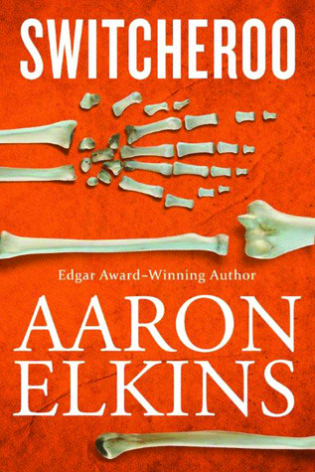 Switcheroo by Aaron Elkins
Switcheroo by Aaron Elkins Series: Gideon Oliver #18
Published by Thomas & Mercer on Feb. 16, 2016
Genres: Mystery
Pages: 273
Format: eARC
Source: the publisher through NetGalley
Add to Goodreads

Also in this series: Dying on the Vine
Also by this author: Dying on the Vine, A Dangerous Talent
The Skeleton Detective is back.
A cold case dating from the 1960s draws forensic anthropologist Gideon Oliver to the Channel Islands decades later to shine a light on the mysterious connection between two men who died there on the same night.
Swapped as young boys by their fathers during the Nazi occupation, wealthy Roddy Carlisle and middle-class George Skinner had some readjusting to do after the war ended—but their lives remained linked through work, trouble with the law, and finally, it would seem, through murder.
Nobody expects that Gideon’s modern-day investigation will turn up fresh bodies. But old bones tell many tales, and the Skeleton Detective has to be at his sharpest to piece together the truth before the body count mounts still higher.
Declared “a series that never disappoints” by the Philadelphia Inquirer, the Gideon Oliver mystery series is highly recommended for fans of Agatha Christie and Kathy Reichs.
I received a review copy of this book from the publisher through NetGalley.
Review
Aaron Elkins is back with another Gideon Oliver mystery, the first in almost four years, and it’s a good one. Take a pair of children switched as toddlers, a 50-year-old murder, two sets of bones found in a tar pit. Throw in a public servant with family ties to all of the above, an expert on bones, and a fresh murder, and what begins as a more-or-less academic investigation turns into a convoluted mystery with roots in the past and a decided foot in the present.
When it comes to forensic anthropology, Elkins really knows his stuff. . . as well he should, being a former professor of anthropology himself (not unlike his fictional detective.) It never ceases to amaze me what Gideon can figure out from a few fragments of what was once a human being. But Gideon is not just a skeleton detective. He’s observant, intelligent, and he never stops trying to figure things out when they don’t fit together, whether the pieces are bones or other clues.
Unlike many mysteries (and most cozies), Elkins doesn’t focus on one or two POV characters as they try to solve the mystery. Instead, the narrative, while remaining in third-person-limited, jumps from one character to another as the scenes change, always focusing on to or by whom the action is occurring at the time: Gideon; Rafe, the jovial, debonair Jersey Senator who asks Gideon to investigate a cold case that’s rather close to home; Rafe’s cousin Abbott Skinner; Mike Clapper, the chief detective inspector; a pair police detectives; and of course, some of the major players in the past. This serves two purposes: it gives the reader a clear if potentially biased view of important events, and it cuts down on explanations, interrogations, and reports — you see what unfolds instead of being told about it through dialog.
Of course, what you see is only what Elkins wants you to see. And he may withhold some information from you — but that information is usually of three types: things Gideon doesn’t know or wouldn’t have any way of knowing about, forensic information that only Gideon would know, and Gideon’s own thoughts based on his observations. Actually, you do get a fair bit of the latter, and Elkins shares many tidbits of forensic anthropology as Gideon explains or relates them to someone else, which he does with an endearing delight in surprising people and a lovably professorial air. It’s not unlike hearing Hercule Poirot or Sherlock Holmes explain their thought processes, though Gideon is less fussy and eccentric than Poirot and much warmer and more human than Holmes. But Elkins generally withholds a few strategic pieces of information — a very few.
The point is that you have most of the clues, if you’ve been observant — but perhaps not quite all of them. It makes solving the crime yourself possible, but not easy, which is exactly what I want in a mystery. And in this novel, Elkins succeeded in snowing me completely; I didn’t solve either the cold case or the subsequent modern murder correctly. (I did get a couple of details right, though, including something to do with the title, Switcheroo.)
The characters are, by and large, engaging, and I enjoyed spending a few hours renewing my acquaintance with Gideon, John, Julie, and another character who show up unexpectedly from a previous book. Some of the secondary characters are “types”, but well-drawn ones, particularly abrasive Miranda and an ancient solicitor, Jouvet. Above all, I enjoyed the mystery, which initially appeared fairly straightforward and rapidly became less so.
Because Gideon is an internationally-renowned expert (the “Skeleton Detective”), he lectures at conferences all over the world, and is frequently called in to consult on local cases, often cold cases or old bodies only recently discovered. This gives Elkins plenty of opportunity to vary the setting from book to book, which is a plus in my eyes. And Elkins clearly does his research. . . which is a minus. In recent books, there has been far too much information given about each location in which the Olivers find themselves. Detailed descriptions of the scene of a murder are of course important, as are evocative depictions of the general locale as it affects the case and/or the people involved in it. But Elkin’s novels sometimes feel as though they’d swallowed a guidebook and are attempting to regurgitate it whole. For instance, at the beginning of Switcheroo, Gideon, Julie, and John are in Spain for a conference, where they meet Rafe. The locale is less important than the fact that they meet him and he eventually suggests that Gideon take a look at some bones found in a tar pit on the isle of Jersey. Yet we are treated to detailed descriptions of the town, its sights and history, the restaurants, and the food, none of which has any relevance to the case or the story. I’m sure it’s all intended to give local color and flavor (literally), but it ends up feeling like unnecessary padding.
I also felt the pacing was off in this story. The exposition of the backstory which takes place in the first chapter is interesting, but the pace falters in chapter 2 when we’re with the Olivers in Spain, and doesn’t really pick up speed again until some time after they arrive in Jersey. All in all, I think the book would have benefited from a tighter narrative.
I’ve been reading this series since I first discovered it in the 1990s at my local library, and despite that last mini-rant, I’ve been enjoying it just as long. I do have to wonder: why don’t Gideon, his wife Julie, and his friend and colleague John Lau ever seem to age? The first book was published in 1982, and I think Gideon was already in his late thirties or early forties then. Now he’s (still) only 42. I wish I knew his secret! Alas, it’s a side benefit of a fictional existence, and hence not one I’ll ever experience. . . but I’ll continue reading the books as long as Elkins keeps writing them.
If you’ve never read a Gideon Oliver book, you can really dive in at any point. Switcheroo is as good a place as any, but you might want to try the Edgar Award-winning Old Bones as well. Either way, you’re in for an interesting and entertainingly educational read.
Recommended for fans of Agatha Christie and/or forensic-science crime shows.
Reading this book contributed to these challenges:
- COYER Going Back To Basics (Winter 2015-2016)
- Cruisin' Thru the Cozies 2016


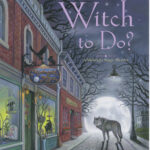


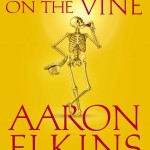
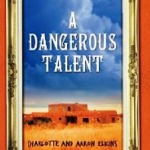




























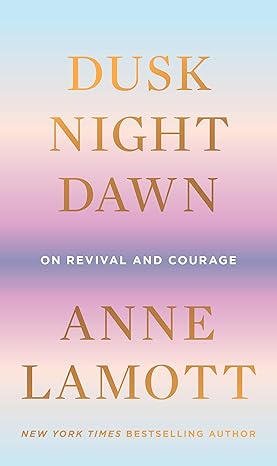
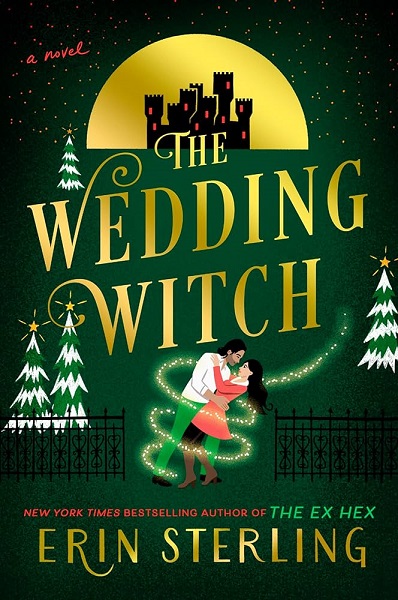









Literary Feline
I remember having to pause a couple times while reading J.A. Jance’s J.P. Beaumont series, especially the earlier books, because of the lack of character aging despite time clearly passing. It’s such a minor thing and doesn’t really hurt my enjoyment of her books, but it’s there in the back of my head anyway. I have never read this series, but it does sound good! I have an interest in forensic anthropology, and it sounds like Gideon is a good protagonist.
Literary Feline recently posted…Bookish Thoughts: What She Knew by Gilly Macmillan
Lark_Bookwyrm
When I come to think of it, there’s a bit of a tradition along those lines. I mean, neither Nancy Drew nor the Hardy Boys ever seem to age. But yes, it does sort of break the suspension of disbelief, if only briefly. I do like Gideon; he reminds me in some ways of my stepdad.
Katherine @ I Wish I Lived in a Library
I really miss these characters! I stumbled on Elkins by accident in a used bookstore about 20 years ago and read everything I could find of his for a long time but I stopped a little while ago. That’s too bad about the pacing and the padding and I do agree that Gideon doesn’t age. I found that a little strange even years ago! Maybe it’s a kind of reverse Narnia thing? Time moves much faster here than in the Aaron Elkins world. I’m looking forward to catching up with these characters really soon.
Katherine @ I Wish I Lived in a Library recently posted…Death and the Brewmaster’s Widow – Review
Lark_Bookwyrm
I did the same when I first discovered him – read everything I could find. I love the two or three Chris Norgren mysteries, too.